A variety of culinary traditions combine in Spanish cuisine. Over time, the country has repeatedly been occupied by foreign powers, all of which have influenced its cuisine. Starting in the 8th century BC, the Phoenicians colonized the territory and began producing olive oil and wine. Six centuries later, the Romans introduced the practice of stuffing animals with vegetables, sauces and spices. Between the 8th and 15th centuries, Arabs conquered the peninsula, bringing with them almonds, honey, raisins, rice and herbs. Around 1500, Spanish cuisine incorporated new, previously unknown ingredients from the Americas: cocoa, coffee, potatoes, beans and tomatoes.
Many of these ingredients play a part in one of Spanish cuisine’s most typical dishes: paella. Paella is prepared with rice, vegetables, rabbit meat and chicken. In coastal areas, fish and seafood are also added. Another very popular dish is gazpacho, a soup made with tomatoes, peppers, cucumbers and bread, garnished with croutons and served cold. A Spanish tradition is eating tapas, small appetizers served in bars. The most common tapas are made with olives, dried fruit, fried fish, seafood, meatballs and a spicy pork sausage called chorizo. Local dry-cured hams such as jamon serrano or pata negra are also delicious, as are cheeses made with sheep’s milk, the most famous of which is queso manchego. These appetizers are often eaten while drinking a glass of beer, vino tinto (or red wine), or sangria, an aperitif made with wine and fruit.
Desserts are mostly made with almonds, honey and cookies. One typical dessert is crema catalana, made with milk, eggs, sugar and caramel. Thanks to the widespread use of vegetables, fish and olive oil, Spanish cuisine is very well balanced and nutritional. Its numerous ingredients guarantee the right intake of vitamins, proteins and fat. For Spaniards, lunch is the main meal, and is eaten between two and four o’clock in the afternoon. Dinner, on the other hand, is limited to a light soup or a few tapas, and is served after ten in the evening. Like other Mediterranean peoples, the Spanish also consider each meal a ritual, preferably shared with others and enjoyed without any rush.
Many of these ingredients play a part in one of Spanish cuisine’s most typical dishes: paella. Paella is prepared with rice, vegetables, rabbit meat and chicken. In coastal areas, fish and seafood are also added. Another very popular dish is gazpacho, a soup made with tomatoes, peppers, cucumbers and bread, garnished with croutons and served cold. A Spanish tradition is eating tapas, small appetizers served in bars. The most common tapas are made with olives, dried fruit, fried fish, seafood, meatballs and a spicy pork sausage called chorizo. Local dry-cured hams such as jamon serrano or pata negra are also delicious, as are cheeses made with sheep’s milk, the most famous of which is queso manchego. These appetizers are often eaten while drinking a glass of beer, vino tinto (or red wine), or sangria, an aperitif made with wine and fruit.
Desserts are mostly made with almonds, honey and cookies. One typical dessert is crema catalana, made with milk, eggs, sugar and caramel. Thanks to the widespread use of vegetables, fish and olive oil, Spanish cuisine is very well balanced and nutritional. Its numerous ingredients guarantee the right intake of vitamins, proteins and fat. For Spaniards, lunch is the main meal, and is eaten between two and four o’clock in the afternoon. Dinner, on the other hand, is limited to a light soup or a few tapas, and is served after ten in the evening. Like other Mediterranean peoples, the Spanish also consider each meal a ritual, preferably shared with others and enjoyed without any rush.
RELATED
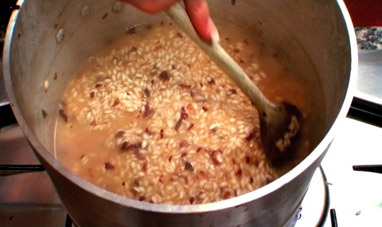

SHRIMP RISOTTO


CARIBBEAN CUISINE
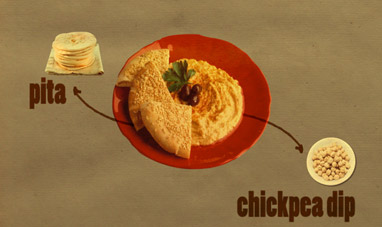

EGYPTIAN CUISINE
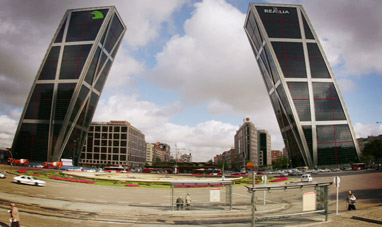

MADRID


RIO DE JANEIRO


COCONUT DELIGHTS


ZÜRICH
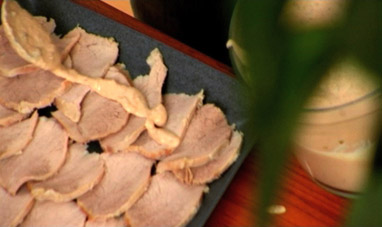

VITELLO TONNATO


AMSTERDAM
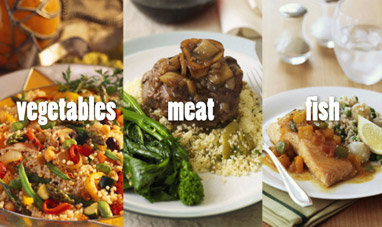

ARAB CUISINE
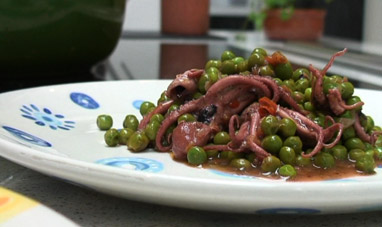

MOSCARDINI WITH PEAS


BAGHDAD


THE ACROPOLIS IN ATHENS


HAGIA SOPHIA


VODKA


JAPANESE CUISINE
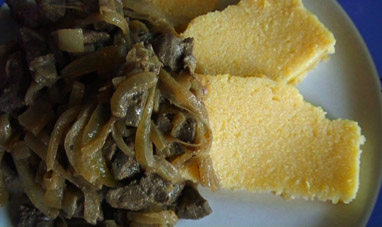

LIVER ALLA VENEZIANA


BUENOS AIRES


WASTE IN THE WORLD
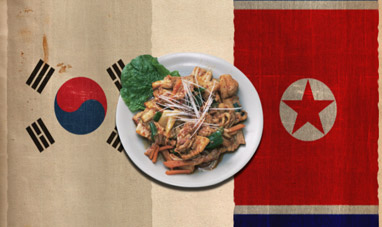

KOREAN CUISINE


CHINESE CUISINE
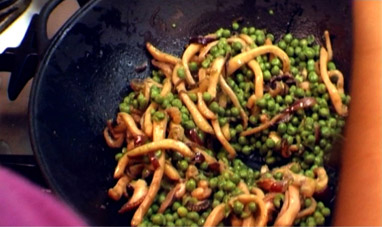

SEPPIOLINE WITH PEAS
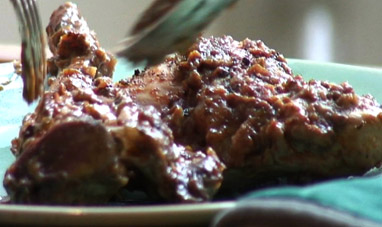

RABBIT ALLA CACCIATORE


SYDNEY OPERA HOUSE


DUBAI


SHANGHAI


TOKYO


BEIJING
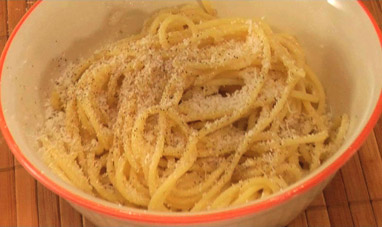

PASTA CACIO E PEPE


VENICE


NEW YORK


LONDON
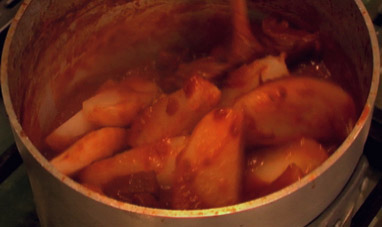

GOULASH


BRAZIL


NEW DELHI
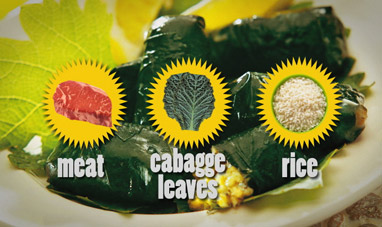

GREEK CUISINE
